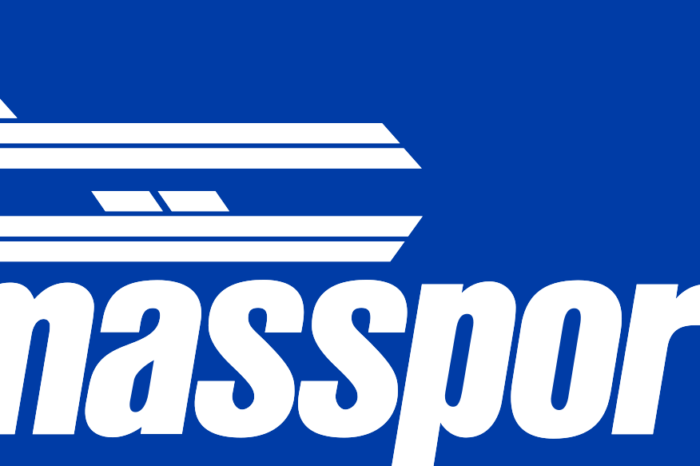MassOpenBooks: A look inside MassPort
Every day, thousands of passengers pass through Logan Airport, a facility run by the Massachusetts Port Authority, or MassPort. What many may not realize is that in addition to its state agencies, the Commonwealth of Massachusetts grants public-employee benefits and funding to several large “quasi-public” agencies. MassVentures and the Massachusetts Housing Partnership lead the pack in average employee pay, with $109,958 and $102,245, in 2016, respectively. But MassPort, which also manages Norwood and Hanscom Airports, isn’t far behind at $78,307. Using Pioneer Institute’s MassOpenBooks tool, let’s take a look at MassPort’s finances.

MassPort Police
Even though MassPort has handed off virtually all public safety duties to Troop F of the Massachusetts State Police, it has retained the MassPort Police.
Every year, it costs at least $1.3 million to maintain the MassPort Police. While this pales in comparison to the large budget needed for Troop F’s 140 officers, some question why this 15-20 person police unit is needed at all. MassPort officers rake in significant pay even though many of their responsibilities could be conducted by the State Police. In fact, only one MassPort officer made less than $84,000 in 2017 and most made between $99,000 and $125,000.
In March 2018, the Boston Globe reported that the officers of Troop F would be paid through the State Police, with money provided to the agency by MassPort. An earlier Globe special report found that neither agency had publicly filed payout information with the state comptroller since 2010, impeding cost transparency. This was rectified after the funding stream was changed.
Under the previous arrangement, MassPort directed $32.5 million annually to pay Troop F officer salaries. Last year, Troop F adopted a funding program similar to that of Troop E, which patrolled the Massachusetts Turnpike before being disbanded in 2018. Under the new agreement, the State Police funds Troop F directly and is then reimbursed by MassPort.
As the Commonwealth forces both agencies to become more transparent, additional consideration should perhaps be given to the role of the MassPort Police.
Gleaning insights from pension payments

MassPort pensions above $100,000 a year
Like public agencies throughout the state, MassPort has an aging workforce and faces a growing number of retirements. Pension liabilities are often the public sector’s hidden cost and MassOpenBooks offers a unique view of pension data.
From the perspective of citizens and policymakers, the good financial news is that only 3 percent of MassPort pension recipients collect over $100,000 a year, although this is still much higher than state pension recipients as a whole, only one percent of whom receive over $100,000. In fact, 56 percent get annual distributions of between $50,000 and $75,000. Another 20.5 percent receive between $75,000 and $100,000 per year. Nevertheless, the sum of MassPort pension obligations has steadily risen throughout the 2010s, with the total collected by retirees increasing from $5.7 million in 2011 to $8.3 million by 2017.

Overview of MassPort pension outlays
Understanding vendor payments
Among quasi-public agencies, MassPort is fifth in terms of annual payments to vendors, behind only the MBTA, Housing Finance Agency, School Building Authority and Commonwealth Health Insurance Connector. As might be expected, much of the $543,883,346 sent to vendors in 2018 went to servicing debt and paying for construction and maintenance. For instance, BNY Mellon and US Bank received $60 million and $57 million respectively.
Skanska USA Building, one of the nation’s largest construction firms, was paid $28.9 million, along with over $10 million each to J.F. White Contracting, Bond Brothers, McCourt Construction, Daniel O’Connell & Sons and Suffolk Construction.
But the other leading vendor expense category revealed in MassOpenBooks is intergovernmental transfers. For example, MassPort sent $25 million to the US Army Corps of Engineers, $13 million to the City of Boston, and $5.3 million to the state, as well as recording a $24.5 million transfer to the aforementioned Troop F.
The organization is a bulk utility buyer as well, paying $3.9 million to the Boston Water and Sewer Commission and $2.85 million to Nstar Electric. Servicing pension and healthcare obligations for current employees cost $19.5 million, which went to the state’s other post-employment benefit fund and Blue Cross Blue Shield.
Note: The author contacted the MassPort public relations team to determine the current jurisdiction of the MassPort Police now that Logan security resides with State Police Troop F. Despite numerous phone inquiries, the author received no response from MassPort and its legal team.
About MassOpenBooks
MassOpenBooks is a powerful data analysis tool, created by Pioneer Institute to compare employee pay, vendor and pension distributions across—and within—Massachusetts state agencies, quasi-public agencies and public universities. Discover the often hidden financial stories of how the Commonwealth runs at massopenbooks.org.



